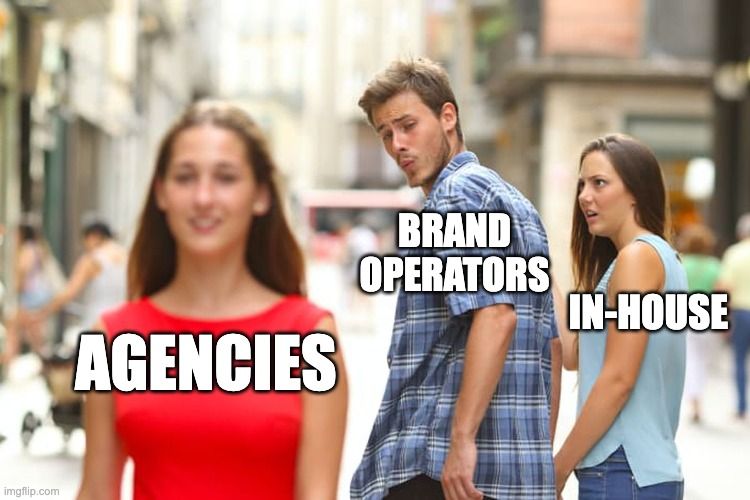I recently had a friend on Twitter who reached out and asked me this question (paraphrased to keep it private):
I'm working with a brand who offers two types of ways to purchase: 1) one-off purchase and 2) subscription. Each of these have their own unique conversion actions. They want to split their overall budget into two, allocating some spend to purchase and some subscription. The problem is that many of their campaigns and keywords have a fairly even mix of driving both conversions. I'm trying to think of how to best structure this and one idea I have is to create two separate campaigns that each optimize towards one unique conversion action. If I did that, I'd need to have some keyword overlap between the two to because some keywords are good at driving both types of conversions. Since each campaign has it's own conversion action and goals, I'd like to think that the AI would choose which campaign to match to, but I don't know if that'd work out as nicely as I'd like. What do you think? Any other ideas to think through?
I think this is a great question, and we have advertised for a number of websites over the years who run both models of one-time purchasers, and subscribers. So what's the best route forward? Here is what I sent back to him, and I wanted to share it* with you all as well, my blog friends! Enjoy, and definitely reach out with any questions you may have.
Hey! Great question. So I think about this a little differently (yes we've run multiple accounts with both single product sales and subscription models).
The way I think of it is that the overall marketing audience is just a customer interested in purchasing your product, and the move to subscription is more of a sales / CRO / LP content responsibility. If you think about it, the person taking the time to type your product into Google, really can qualify for either of those models aside from a few personal reasons. Some may be hesitant about whether this actually works and just "trying it". Some may simply not have the money for an ongoing subscription at this time. Some may only need it temporarily.
I think you already noted the primary challenge here that you're trying to address with campaign structures: our advertising can't easily distinguish between people who are more likely to purchase a subscription or not.
Advertising (and I think more broadly, Marketing) can simply identify general targets of who likes the product based on the tools we can use. I.e., we can learn base traits of people who are searching for our product, and then drive them to purchase, but then our ability to move them from one-time to subscriber is nonexistent. The closest we can get is to identify whether certain segments of people behave in different ways of interest and then market separately to those people. Let's say you determine that 45-60 year olds tend to make one-time purchases while 18-24 year olds tend to purchase subscriptions. If there is clear distinction, then perhaps it makes sense to segment advertising campaigns by those demographics and lead them to unique landing pages. However, this is not always the case, and in this instance it sounds like you haven't identified clear audience demographic purchase behavior.
In that case, I think working closely with the website operator on their Offer and/or LP (Landing Page) content will move the dial FAR more than segmenting your campaigns around.
In fact, arguably you actually run the risk of harming your advertising by over-segmenting if you try to break an audience without distinctive purchase behavior into unique campaigns/ad groups because then you're splitting up your conversions and limiting the information your ML bidding algorithms have to make the best decisions they can make... just for audiences that may not be substantively different overall. Make sense?
So IMO, this is one of those things that sounds like a marketing problem, when in actuality it's a sales problem... I don't think you as the Google Advertiser can solve it with campaign or audience segmentation (aside from the caveat I noted above). I think your responsibility as the advertiser is to drive as many people as possible who want to buy that widget, and their responsibility is to convince their customer to subscribe rather than just single purchase. Hope that's helpful to you!
*This article was edited for public consumption from the original reply, and I admit to adding in another detailed caveat that I thought of for this blogpost, too that I didn't include in my original DM reply.

%20(1).png)
.webp)


.jpeg)

.jpg)




